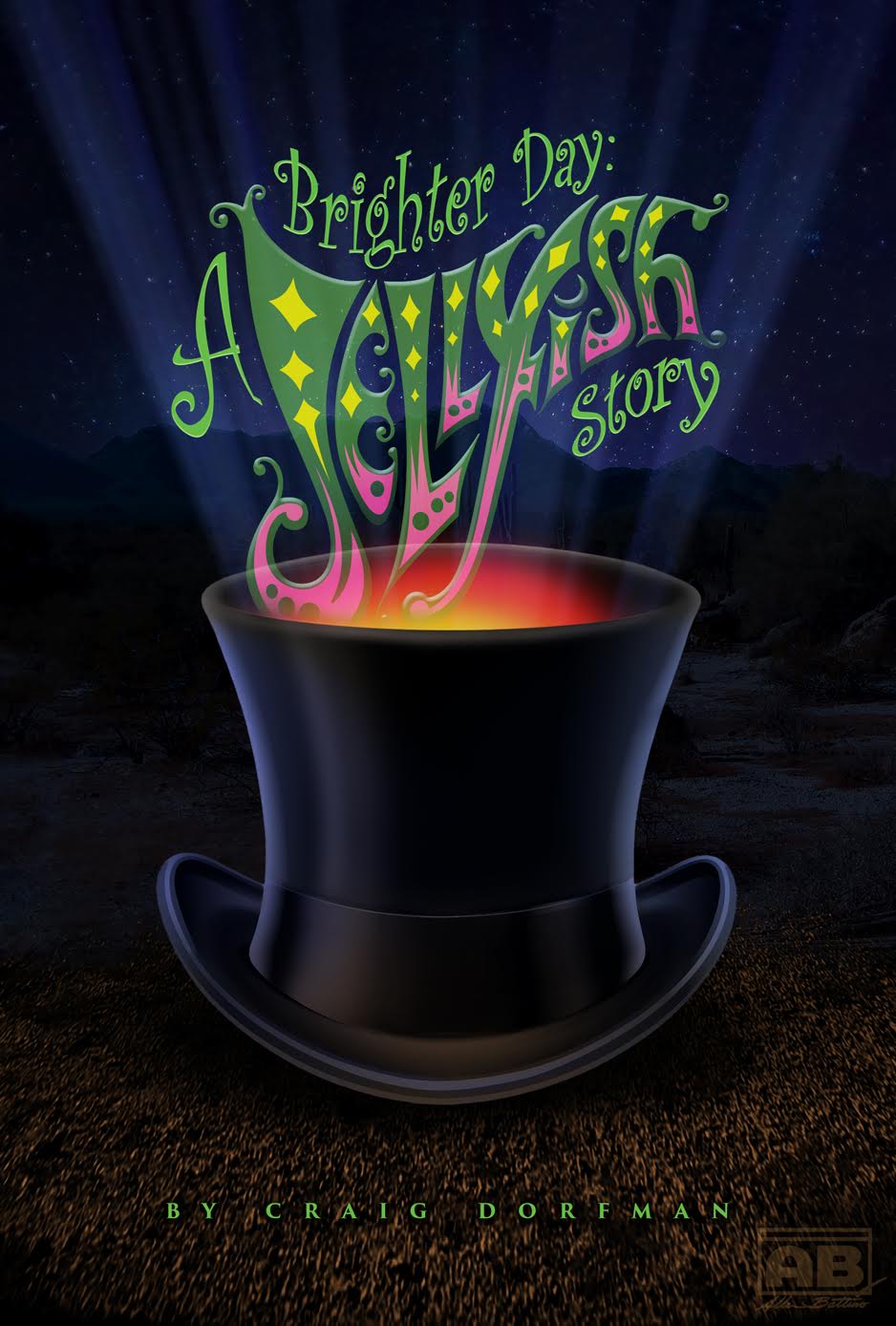 Story: In tracing the family histories of the band members, charting their musical adventures before and after Jellyfish, and recounting conversations between the band themselves, their agents, label reps, producers, and occasional session players, the author is really trying to answer one question: why were there only two albums?
Story: In tracing the family histories of the band members, charting their musical adventures before and after Jellyfish, and recounting conversations between the band themselves, their agents, label reps, producers, and occasional session players, the author is really trying to answer one question: why were there only two albums?
Review: Jellyfish is a band whose all-too-brief body of work has been dissected, repeatedly remastered, relentlessly reissued, and held up as the standard of an entire genre of music…which really isn’t bad when that body of work consists of the band’s two early ’90s albums, the demos for those albums, and a handful of demos – maybe half an extra album’s worth – of songs pitched to other artists during the band’s active years. None of the demos made it out until nearly a decade after Jellyfish disbanded, though, so we’re talking about two really influential albums.
The answer to the book’s central question takes the form of a book’s worth of classic creative differences and clashes of ego and personality. Always centered around the songwriting duo of Andy Strurmer and Roger Manning, Jellyfish had little room for other creative input, but took on headstrong, confident would-be rock star Jason Falkner during pre-production of the first album anyway. Falkner joined the band on a promise of equal creative input: he’d have a say in what he was playing, and as a songwriter in his own right, he’d get to add material to the band’s catalogue. He also personally coached Manning’s younger brother Chris, who joined as bassist soon afterward. The end of this promising first lineup – the band that recorded 1990’s Bellybutton – was simply down to Falkner losing patience with being shut out as a creative contributor, and Sturmer not being particularly sorry to see him go. Chris Manning, appalled at how all of this had gone down, left soon afterward.
But Sturmer and Roger Manning had another album in mind, heavy on stylistic homage to A Night At The Opera-era Queen; having to recruit another entire band around them wouldn’t stop them. Lyle Workman, fresh from just-broken-up ’80s cult pop heroes Bourgeois Tagg, joined them in the studio to take Falkner’s slot as guitar god, only to be stabbed in the back later by management, concerned that the veteran studio session player didn’t have stage presence. Though much of the killer guitar work on 1994’s Spilt Milk is Workman, the group was formally credited as Sturmer, Manning, and new touring members Tim Smith and Eric Dover.
With everything riding on Sturmer’s mercurial mood shifts and social awkwardness, even that new lineup and the impressive new album came to nought; Jellyfish broke up at the end of touring in support of Spilt Milk and the members went their separate ways. The book takes great pains to note that, while Sturmer and Falkner wound up working as session players on a Paul McCartney album quite by coincidence, and Falkner and Manning have worked together numerous times, Sturmer and Manning have literally not spoken to each other since the breakup of Jellyfish.
And that’s really the tone-setter for the whole book: as much as we might marvel as the music that could have been, the real tragedy is the dissolution of a once-unshakeable friendship and creative partnership. All of the members have moved on to other projects, though Sturmer had faded into the backstage world of producing and writing, without generating any solo material under his own name. Falkner, Manning, and the new members brought aboard for Jellyfish’s short-lived Spilt Milk touring configuration have all gone on to release their own music, that latter pair under the name Umajets, and all of it bears the hallmarks of Jellyfish’s sound and style. Jellyfish lives in every way but name and the full-up reunion fans would like to see.
And thanks to this book, we now have a warts-and-all, honest-to-a-fault record of why. The interviews and recollections are reformatted into conversations that flow like a novel, adding up to a story of musical prodigies whose creativity could more than fill the same studio if all of them gathered there at once. There’s no drug abuse in this story, and the closest anyone gets to having even so much as a drinking problem is when Falkner has to back off on fairly mild recreational drinking because his final days with the band were causing him an ulcer. There are no villains or addictions here – just three brilliant musical talents who couldn’t get along. It’s all recorded expertly and assembled logicallly, so I can recommend Brighter Day: A Jellyfish Story to you…just be aware that it’s disheartening in places, especially to fellow creative types.
Year: July 1, 2016
Author: Craig Dorfman
Publisher: Not Lame Media
Pages: 336




